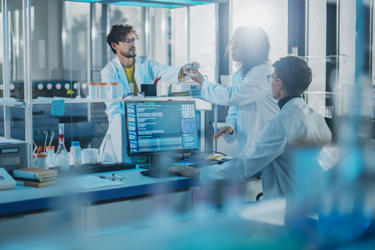Optimizing Development And Scale-Up Of Insoluble, Microbially Expressed Biologics

Inclusion bodies, historically considered undesirable byproducts of microbial expression systems, are now gaining attention for their potential to produce a range of difficult-to-express proteins in E. coli systems. The current biologics landscape is largely dominated by antibodies produced using CHO systems. Despite this, microbial systems, particularly E. coli, are still integral in enabling the production of more complex molecules less readily expressed in mammalian cells. E. coli can produce molecules that are soluble, expressed in the cytoplasm, fully folded, and active upon production.
However, E. coli can also produce inactive misfolded proteins that form masses of amorphous unfolded protein within the cell. While these misfolded proteins have long been considered an undesirable byproduct, more recent research has shown that these inclusion bodies may be valuable in increasing titers and simplifying primary separations.
In a recent webinar, Steve Loftus, Microbial Business Steering Group Lead for FUJIFILM Biotechnologies (FB), explored the major challenges associated with the development of microbial fermentation processes, as well as how FB’s capabilities and expertise can help customers leverage inclusion bodies to improve their applications’ CQAs.
Get unlimited access to:
Enter your credentials below to log in. Not yet a member of Outsourced Pharma? Subscribe today.
